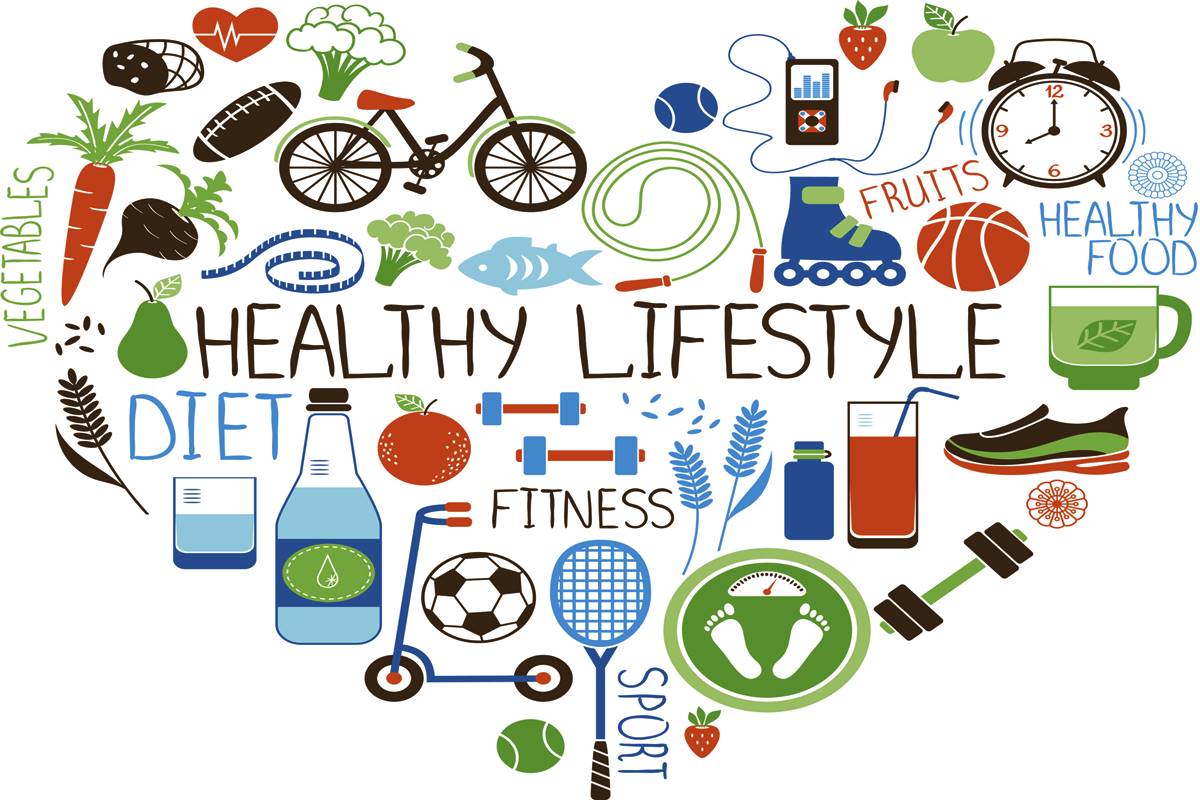A healthy lifestyle can help you a lot as you navigate your life’s journey. Making healthy choices isn’t very easy – it can be difficult to find the time and energy to exercise regularly or prepare healthy meals. However, your efforts will pay off in many ways and they last for the rest of your life.
- Steps you can take:
- Be physically active for 30 minutes most days of the week. Break this up into three 10-minute sessions when you need time. Healthy movement can include walking, sports, dancing, yoga or running.
- Eat a well-balanced, low-fat diet with plenty of fruits, vegetables, and whole grains. Choose a diet low in saturated fat and cholesterol and moderate in sugar, salt and total fat.
- Avoid injury by wearing seat belts and bicycle helmets, using smoke and carbon monoxide detectors in the home, and using smart street devices when walking alone. If you own a gun, be aware of the dangers of having a gun in your home. Use safety precautions at all times.
- Don’t smoke and stop if you do. Ask your healthcare provider for help. UCSF offers a smoking cessation program.
- If you drink alcohol, drink in moderation. Never drink before or while driving or when you are pregnant.
- Ask someone you trust for help if you think you may be addicted to drugs or alcohol.
- Help prevent sexually transmitted infections (STIs) and HIV/AIDS by using condoms every time you have sex. Keep in mind that condoms are not 100 percent safe, so discuss STI screening with your provider. Birth control methods other than condoms, such as pills and implants, will not protect you from STIs or HIV.
- Brush your teeth after eating with a soft- or medium-bristled toothbrush. Also brush after drinking, before going to bed. Floss daily.
- Stay out of the sun, especially between 10 a.m. and 3 p.m., when the sun’s harmful rays are at their strongest. Don’t think you’re safe if it’s cloudy or if you’re in the water, as harmful rays pass through both. Use a broad-spectrum sunscreen that protects against UVA and UVB rays, with a sun protection factor (SPF) of 15 or higher. Choose sunglasses that block 99 to 100 percent of the sun’s rays.
Your healthy perspective
You may feel pulled in different directions and experience stress from work, environment, family and other issues, leaving little time for yourself. Learning to balance your life with a little time for yourself will pay you off and it will lead to great benefits – a healthy outlook and better health.
Steps you can take:
- Keep in touch with family and friends.
- Be involved in your community.
- Keep a positive attitude and do things that make you happy.
- Keep your curiosity alive. Lifelong learning is good for your health.
- Healthy intimacy takes all forms, but is always free of coercion.
- Learn to recognize and manage stress in your life. Signs of stress include trouble sleeping, frequent headaches, and stomach problems; very angry; and turning to food, drugs, and alcohol to relieve stress.
To deal with the stress you can include regular exercise, healthy eating habits, and relaxation exercises such as deep breathing or meditation. Talking to trusted family members and friends can help a lot. Some people find interacting with their religious community helpful in times of stress.
Get enough sleep and rest – adults need about eight hours of sleep a night.
Talk to your healthcare provider if you feel depressed for more than a few days. Depression is a treatable disease. Signs of depression include feelings of emptiness and sadness, crying a lot, loss of interest in life, and thoughts of death or suicide. If you or someone you know is having suicidal thoughts, call for help right away. Call 911, a local crisis center, or (800) SUICIDE.
